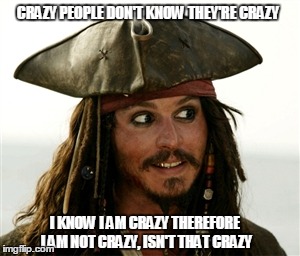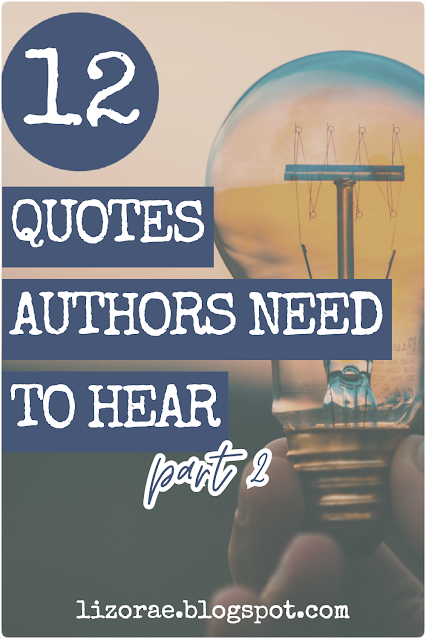12 Quotes To NURTURE YOUR AUTHOR MINDSET (Part Two)
Last month, I wrote 12 Quotes To Nurture Your Author Mindset, but I only wrote about six quotes. I had collected 12 quotes but I only had time to write about half of them. Yay procrastination!
But now, I'm going to finish the last six quotes. Let's get to!
7. "If there's a book that you want to read, but it hasn't been written yet, then you must write it." -Joni Morrison
You know that dream book you've had all your life? Stop wishing that someone else will write it. Get down to work and write it yourself.
Getting someone else to write it, unless you commission and even then, is only going to lead to disappointment. There will be something missing. After all, the author can't read your mind. They might not even know you.
Wishing for someone else to write it is pointless. Your dreams you've been building all your years will crumble away.
The only person who can write exactly what's in your mind is you. Only you can write the book you want to read.
8. "Even the greatest was once a beginner. Don't be afraid to take that first step." -Unknown
No matter what field you want to go in, you'll find experts. Language, drama, science. And writing. Whatever stage you're at in your writing career, there's someone better than you.
The pressure can build. But always remember: think of the best author you know. Where do you think they started? As mind blowing it may (or not) be, they too were once a beginner.
Don't look at this and give up. Look at it as inspiration. If you truly apply yourself and reach for the stars, you can be that good too. Take that first step and don't give up.
9. "The only difference between a writer and a crazy person is that a writer gets paid for it." -David Gerrold
 |
| Source: Imgflip |
I identify with this quote 100%.
If you think about it, why on earth would someone spend hours at a desk writing lies and pretending it's real? Why would someone create imaginary people and share them with the world? Let's not even mention genre specific research. You know what I'm talking about.
The things that come to my head are compulsive lying disorder and delusions. Please note, I'm not saying people with these conditions are "crazy". On the contrary, I understand these are serious and often not their fault. But I do say that people with these conditions should receive help from psychologists and counsellors.
We authors do this, but we don't need to get help. With obvious exceptions. Instead, we get cash. I call this a win-win situation.
Embrace the craziness, fellow author. The crazier, the better!
10. "To a great mind, nothing is small." -Sherlock Holmes
If you have a great mind, anything deemed small by others is actually big. You see that ant over there? That's big. That grain of rice? It's massive.
Bwahahaha! I'm hilarious.
Okay, getting serious now. I like to consider the writing community to be pretty intelligent people. To live up to this standard, we must find significance in everything.
There is something special in the first moments of dawn. Something unique as rain starts to drizzle. Let's take a moment to appreciate the world.
(And yes, I'm probably taking this quote out of context, but whatever. :p)
11. "Description begins in the writer's imagination, but should finish in the readers." -Steven King
Some authors write pages and pages of description, detailing every little bit of trivia. Firstly, it's boring. Readers don't need to know absolutely everything. The only reason you'd be writing everything out is if it's for your private notes or if it's requested for fanfic/art and things like that. Even then.
Secondly, it's unnecessary. Most readers will skip it anyway. But the biggest reason why you shouldn't describe everything is because it restricts the reader's imagination. Authors set the stage, but readers should be the ones to finish it.
What's the lesson here? Don't feel like you have to control everything. Even though you're the author, the creator of a whole world, is the story really your own? Or are characters telling you their story and your sole purpose is making it sound good?
12. "No tears in the writer, no tears in the reader." -George Moore
 |
| Source: Giphy |
If you don't like the story you're writing, don't write it at all. Any story you write should have the full force of your passion behind it. Readers can tell if you don't like what you're writing.
When you write, feel all the feelings. Of all people, the author must be the most emotionally attached to your story. If you don't cry (or feel sad) during the sad scenes, you shouldn't expect your readers to cry. If you don't laugh (or smile) during the funny parts, you shouldn't expect your readers to laugh. There will be exceptions, as always, but so much more people will feel the same emotional attachment if you first have it.
Of course, there will be days, maybe weeks, where you won't feel the same passion you felt when you started. It's natural and nothing to be embarrassed about. Passion will dip in and out. But as long as your love for your story is evident, you're good to go.

Comments
Post a Comment